EU - Projects
HORIZON ERC-2024-Synergy Grant: MetaDivide
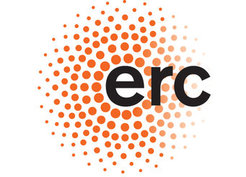
HORIZON-MSCA-2023-DN-01: ComeInCell
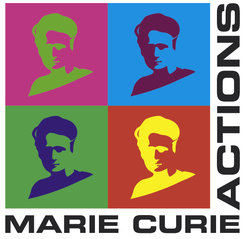
(01.11.2024 – 31.10.2028)
Petra Schwille (Research Department: Cellular and Molecular Biophysics)
Full title: “Condensates at Membrane Scaffolds – Integrated Systems as Synthetic Cell Compartments“
Coordinator: MPG/MPI-CI, Potsdam, 30 partners
Total Budget: 4 Mio €; MPIB Budget: 0,26 Mio €
ComeInCell will establish a novel integrated Synthetic Cell platform to provide cost- and resource-efficient, environmentally friendly, widely applicable and quantitative model systems to elucidate key cellular mechanisms of health and disease based on the integration of condensate and membrane models. Understanding membrane-condensate interactions is vital for deciphering their functional roles in cellular processes.
The projects aim is to train the next generation of biophysicists, biochemists and bioengineers in rigorous quantitative and mechanistic thinking, while establishing strong ties to young and emerging European SMEs in the health sector for efficient dissemination towards new therapies.
HORIZON-MSCA-2023-DN-01: NATPRIME

(01.10.2024 – 30.09.2028)
Petra Schwille (Research Department: Cellular and Molecular Biophysics)
Full title: “Effective Delivery of Nucleic Acid Therapeutics via Designed Nanocarriers“
Coordinator: TU Eindhoven, 16 partners
Total Budget: 4 Mio €; MPIB Budget: 0,52 Mio €
Delivery of Nucleic Acid Therapeutics to desired organs has become the current challenge of biotechnological applications. Advancements on the chemical synthesis or targeting ligands, formulation of complex lipid systems, and their bioassays are essential to establish new gene therapies. Therefore, the main aim of NATPRIME is to establish a multidisciplinary training network on the
emerging topic of nanoparticle-based adjuvants to deliver nucleic acid therapeutics and bridge the gap between fundamental and applied research.
HORIZON ERC-2023-Consolidator Grant: NanoCat

HORIZON-MSCA-2023-PF-01: HETLEWY

(01.05.2024 – 30.04.2026)
Marc Oeller (Research Department: Matthias Mann: Proteomics and Signal transduction)
Full title: “The Heterogeneity of Lewy Bodies in Single Cells“
Parkinson’s Disease (PD) is the second most common neurodegenerative disease affecting millions world-wide. PD pathophysiology is associated with protein aggregates called Lewy Bodies (LBs), and aggregation is impacted by cellular environment, posttranslational modifications and genetic predispositions. Heterogeneity in the composition of LBs across the brain has consequences for neuronal cytotoxicity.
The aim of the project is to identify proteins whose levels correlate with LB heterogeneity, thereby classifying different LB phenotypes and finding ‘tipping points’ in LB maturation that drive cell death. The findings to be gained will provide unique insights into the progression of the disease and may yield new therapeutic candidates.
HORIZON ERC-2022-Advanced Grant: UPSmeetMet

HORIZON-MSCA-2021-PF-01: Tau DG RT-imaging

(01.09.2023+ – 31.08.2025)
Zhenying Liu (Research Department: F. Ulrich Hartl : Cellular Biochemistry)
Full title: “Real-time imaging and mechanistic analysis of Tau fibril disaggregation in live cells“
Age-dependent neurodegenerative diseases associated with protein aggregation represent one of the most important medical and socioeconomic challenges of our time. With the extension of human life span, the prevalence of this group of diseases has markedly increased and have become the second leading cause of death in high-income countries.
As a pathological hallmark, Tau amyloid aggregation in the brain has been determined to be closely related to the cognitive impairment in AD and related dementias. Despite major research efforts world-wide, the mechanism of Tau pathology and how its manifestation is prevented in healthy cells is not yet understood. The planned research will provide new insights into the cellular pathways of fibril decomposition and may benefit the development of new therapeutic strategies for tauopathies.
HORIZON-MSCA-2021-PF-01: IntraMol

(01.01.2023 – 31.12.2024)
Luciano Masullo (Research Department: Ralf Jungmann: Molecular Imaging and Bionanotechnology)
Full title: “Intramolecular optical microscopy with sub-nm spatial resolution in single biomolecules and single-protein sequencing”
Fluorescence microscopy has witnessed a true resolution revolution in the past decades. The invention of methods circumventing the classical diffraction limit of ≈200 nm has allowed researchers – for the first time – to reach sub-diffraction resolution with optical fluorescence microscopy. With these so-called super-resolution techniques, processes within cells can be observed at thus far unprecedented spatial resolutions. However, the final frontier in optical bioimaging to resolve intramolecular distances in the sub-nm regime for single molecules is still elusive. With this research proposal, I want to develop and apply a paradigm-shifting imaging technology that allows intramolecular optical microscopy with sub-nm spatial resolution in single biomolecules.
HORIZON-MSCA-2021-PF-01: Redox in macrophages

(01.09.2022 – 30.08.2024)
Patricia Ogger (Research Group Peter Murray: Immunoregulation)
Full title: “Adaptive redox regulation in inflammatory macrophages“
Macrophages are key players of the innate immune system and as such maintain homeostasis, initiate inflammatory and redox responses for pathogen defence, but also regulate resolution of inflammation. Supporting these functions are distinct metabolic programmes, which underlie macrophage functional phenotypes. While recent advances have improved the understanding of macrophage metabolic programmes supporting specific activation states, it remains unclear how the redox system is regulated in macrophage activation states and during pathogen defence. This project will investigate how redox adaptation is regulated during macrophage activation and its impact on functional phenotypes.
HORIZON ERC-2021-Advanced Grant: GOVERNA

(01.10.2022 – 30.09.2027)
Elena Conti (Research Department: Structural Cell Biology)
Full title:“Understanding the molecular principles governing mRNP architecture“
Total Budget: 2,17 Mio €
Eukaryotic messenger ribonucleoprotein (mRNP) particles are the functional entities that carry genetic information to the protein synthesizing machinery. These ribonucleoprotein complexes are dynamic and diverse, as highlighted by the copious number of proteins and transcripts identified in global proteomic and transcriptomic studies. However, little is known about the composition and architecture of individual mRNPs, and how changes in mRNP structure relate to their function or to dysfunction. The GOVERNA project will address this gap in knowledge by purifying specific mRNPs and delving into their molecular and structural arrangement. .
HORIZON ERC-2021-Advanced Grant: INSITUFOLD

(01.08.2022 – 31.07.2027)
F. Ulrich Hartl (Research Department: Cellular Biochemistry)
Full title: “In situ analysis of chaperone mediated protein folding and stability“
Total Budget: 2,14 Mio €
Molecular chaperones mediate protein folding and conformational maintenance. Failure of these fundamental cellular functions results in a breakdown of protein homeostasis (proteostasis) and facilitates the manifestation of diseases associated with protein aggregation. Much progress has been made in understanding the mechanisms of individual chaperone systems based on analyses in vitro. How these machineries function in the intact cell is not well understood, however. The goal of this project is to observe and characterize the dynamic action of the major chaperone systems and their interplay in intact cells in real time.
ERC-2020-Consolidator Grant: RECEPTOR PAINT

(01.04.2022 – 31.03.2027)
Ralf Jungmann (MPI Research Group: Molecular Imaging and Bionanotechnology)
Full title: “Imaging Receptomics as a tool for biomedical discovery “
Coordinator: LMU, München/DE
Total Budget: 1,6 Mio €; MPIB: 750 k €
Targeting cell surface proteins to alter cellular behavior is a major aim of many therapeutics. Recently approved immunotherapeutic drugs trigger anti-tumor immunity by disrupting key cell surface proteins that guide immune cell interactions. Despite the cell surface representing a major site of drug action, its nanoscale organization remains poorly characterized. The main reason for this is largely due to technical limitations of current fluorescence and super-resolution imaging approaches. We here propose to develop exactly such a disruptive capability by advancing recently developed DNA-PAINT microscopy to enable the visualization and quantification of all relevant cell surface proteins at single-protein-resolution. We expect to gain fundamental insights into the molecular architecture of their interactions and potentially enable the future development of more refined “pattern”-based immunotherapeutics. Collectively, this highly multidisciplinary and novel approach has the potential to be groundbreaking across a range of research fields.
ERC-2018-Consolidator Grant: TOTIPOTENTZYGOTCHROM
(01.02.2020 – 31.01.2025)
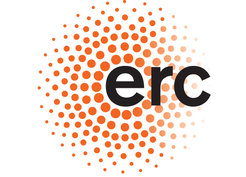
Kikuë Tachibana (MPI Dept.: Totipotency)
Full title: “Mechanisms of chromatin organization and reprogramming in totipotent mammalian zygotes “
Beneficiarys: IMBA, Vienna/AT; MPIB since 01.05.2021
Total Budget: 2 Mio €; MPIB: 1,55 Mio €
Totipotency, the developmental potential of a cell to give rise to all cell types, is naturally achieved when differentiated egg and sperm fuse to form the one-cell zygote. How chromatin is epigenetically reprogrammed to totipotency within hours after fertilisation remains a central question in biology. We aim to address this by investigating the mechanisms of reprogramming and the spatial reorganisation of chromatin in mammalian zygotes.
ERC-2020-Synergy Grant: SYMPORE

(01.04.2021 – 31.03.2027)
Wolf B. Frommer, Corresponding PI (Heinrich-Heine-Universität, Düsseldorf/DE, Dept. Molecular Physiology)
Rüdiger Simon (Heinrich-Heine-Universität, Düsseldorf/DE, Dept. Developmental Genetics)
Waltraud Schulze (Universität Hohenheim/DE, Dept. Plant Systems Biology)
Wolfgang Baumeister (MPI Dept.: Molecular Structural Biology)
Total Budget: 10,5 Mio €; MPIB: 2,47 Mio €
Full title: “Plasmodesmata, Symplasmic pores for plant cell-to-cell communication”.
During evolution of multicellularity, cells differentiated to become specialized and interdependent. Multicellular organisms invented channels for nutrient exchange and communication between cells. Plants uniquely developed plasmodesmata, complex cell-cell connections traversing the cell wall. Roles ascribed to plasmodesmata include selective transport of signals, ions, metabolites, RNAs and proteins. Due to technical hurdles, composition, structure and regulation of plasmodesmatal conductance remain enigmatic. We expect breakthrough discoveries and completely new understanding of plasmodesmatal function and evolution by using novel technologies. Since plasmodesmata play key roles in nutrient allocation and virus spread, we lay the basis for novel biotech solutions in agriculture.
MSC-IF: RARE MAPS

(01.02.2021 – 31.01.2023)
Alex Davies (MPI Res.Group: Systems Biology of Membrane Trafficking)
Full title: “RARE MAPS: Dynamic proteomic maps of stem cell-derived neurons as a mechanistic discovery pipeline for rare neurological disease.“
Rare diseases are a major unmet medical need, as is the definition of the relevant disease mechanisms. Many rare diseases affect the nervous system. These are challenging to treat, and mechanistic studies are difficult due to the inaccessibility of patient tissue. Global proteomic studies have provided insight into whole tissue or cell changes in protein abundance but lose information on protein subcellular localisation, which is important because defects in protein trafficking are implicated in many neurological disorders. This project will demonstrate the utility of dynamic organellar maps to reveal molecular mechanisms of rare neurological disorders as well as provide new insights into the pathogenesis of AP-4 deficiency and the role of protein trafficking and autophagy in the axon.
SC1-Single-Stage-RTD: ISLET
(01.03.2020 – 28.02.2025)
Matthias Mann (MPI Dept.: Proteomics and Signal Transduction)
Full title: “Computational Proteomics Training European Innovative Network “
Coordinator: UCPH/Denmark
9 partners in 5 countries; MPIB partner since 01.01.2021
Total Budget: 7,99 Mio €; MPIB: 801 k €
Type 1 diabetes (T1D) is one of the main health challenges, with 6 million European citizens affected. Today, T1D accounts for a severe economic burden on healthcare and labour force. To bring advanced therapy in type T1D to patients, a scalable source of pancreatic islets for transplantation is needed. The objective of the ISLET project is to build and implement a new and innovative program for the production and marketing of human pluripotent stem cell (hPSC)-derived advanced therapy medicinal products (ATMPs) for treatment of EU citizens with T1D.
ERC-2015-Starting Grant: MOLMAP

(01.04.2016 – 31.03.2022)
Ralf Jungmann (MPI Research Group: Molecular Imaging and Bionanotechnology)
Full title: “From Tissues to Single Molecules: High Content in Situ Super-Resolution imaging with DNAPAINT“
Coordinator: LMU, München/DE; MPIB Partner since 01.01.2021
Total Budget: 1,31 Mio €; MPIB: 385 k €
Fluorescence microscopy is a powerful tool for exploring biomolecules in cells and tissues, especially with the advent of super-resolution techniques. To better understand key processes such as cell differentiation and disease progression, it is crucial to investigate the abundance, localization and mutual interactions of crucial cellular components such as nucleic acids and proteins. Unraveling their complex interplay in whole signaling networks is necessary to investigate cellular responses to stimuli. In this project we try to revolutionize fluorescence microscopy using tools from DNA Nanotechnology with transformative potential to positively answer the question: Can we localize and identify each protein or nucleic acid molecule in a complex tissue microenvironment and ensuite better understand the molecular basis of health and disease?
MSC-ITN: PROTrEIN
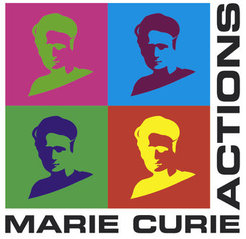
(01.01.2021 – 31.12.2024)
Jürgen Cox (MPI Res.Group: Computational Systems Biochemistry)
Full title: “PROTrEIN: Computational Proteomics Training European Innovative Network“
Coordinator: CRG/Spain
11 partners in 7 countries
Total Budget: 3,9 Mio Euro; MPIB: 506 k Euro
PROTrEIN is a Training Network composed of organizations from the academic and nonacademic sectors with the mission to train a new generation of specialized bioinformaticians and improve their future employability while tackling the main challenges in computational proteomics.
MSC-ITN: PUSHH
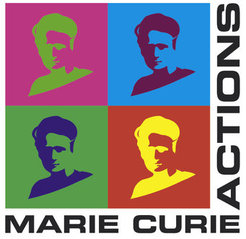
(01.03.2020 – 29.02.2024)
Jürgen Cox (MPI Res.Group: Computational Systems Biochemistry)
Full title: “PUSHH: Palaeoproteomics to Unleash Studies on Human History“
Coordinator: UCPH/Denmark
10 partners in 7 countries
Total Budget: 3,9 Mio Euro; MPI Evolutionary Anthropology + MPIB: 506 k Euro
The project will provide international, intersectoral and interdisciplinary doctoral training to prepare the next generation of palaeoanthropologists, palaeontologists and archaeologists to push knowledge on human biological and cultural evolution forward by using palaeoproteomics.
MSC-ITN: BIOMOLMACS
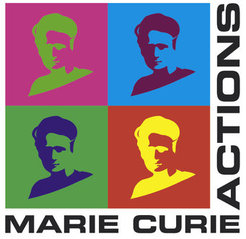
(01.01.2020 – 31.12.2023)
Petra Schwille (MPI Dept: Cellular and Molecular Biophysics)
Full title: “BIOMOLMACS: Molecular Machines Functioning in Cells“
Coordinator: University of Warwick, Warwick/GB
12 partners in 8 countries
Total Budget: 4,1 Mio Euro; MPIB: 253 k Euro
The main aim of the project is to establish a multidisciplinary training network on the emerging topic of molecular machines. In the last decades, great efforts have been spent on the development of synthetic strategies for the creation of molecular machines, and these efforts have been acknowledged by the Nobel committee in 2016. Moreover, synthetic and polymer chemistry have made significant advances in the last decade, to the point that they are able to design and control the sequence of repeat units along synthetic macromolecules.
ERC Synergy Grant: PoInt

(01.04.2019 – 31.03.2025)
Reinhard Fässler, Corresponding PI (MPI Dept.: Department of Molecular Medicine)
Andreas Bausch (Techn. Univ. München/TUM: Dept. of Physics – Cellular Biophysics)
Matthias Rief (Techn. Univ. München/TUM: Dept. of Physics – Molecular Biophysics)
Full title: “PoInt: Principles of Integrin Mechanics and Adhesion”
Total Budget: 7,2 Mio Euro
The key steps of integrin activation are still largely unknown and the underlying physical principles still need to be identified. The project’s aim is a multifaceted approach combining quantitative single molecule measurements, reconstitution of minimal and cellular adhesion complexes as well as development of multicellular structures and organoids. The research will result in a better understanding of the fundamental mechanisms regulating adhesion signaling.
SC1-Single-Stage-RTD: MICROB-PREDICT
(01.01.2019 – 31.03.2025)
Matthias Mann (MPI Dept: Proteomics and Signal Transduction)
Full title: “MICROB-PREDICT: MICROBiome-based biomarkers to PREDICT decompensation of liver cirrhosis and treatment response “
Coordinator: European Foundation for the Study of Chronic Liver Failure (EF-CLIF), Barcelona/Spain
22 partners in 10 countries
Total Budget: 15 Mio Euro; MPIB: 1 Mio Euro
MICROB-PREDICT will investigate the human microbiome to identify predictors and mechanisms associated with the development of decompensation and progression to acute-on-chronic liver failure (ACLF) and death. This will result in better stratification of cirrhotic patients enabling microbiome-based intelligent and personalized allocation to treatment, and ultimately prevent ACLF and reduce mortality. Our identified microbiome-based markers will be validated in a clinical trial and translated into three new clinical tests useful for patients.
MSCA-IF: Fa x Force

(01.09.2019 – 31.08.2021)
Charlotte Kelley (MPI Research Group: Cellular and Membrane Trafficking)
Full title: “Fa x Force - Reconstitution and Structural Analysis of a Minimal Mechanosensitive Focal Adhesion Complex”
Focal adhesions (FAs) are receptor complexes that couple the extracellular matrix (ECM) to the actin cytoskeleton, allowing inside-out and outside-in signaling between cells and their environment. FA formation is triggered by activation of integrin receptors, which interact with cytoplasmic ligands to connect with the actin cytoskeleton and regulate numerous signaling pathways. By using multidisciplinary, innovative approaches, this project will address both functional and structural questions about FA assembly, yielding insight into key interactions and therapeutic targets that will directly benefit biomedical research in this field.
MSCA-IF: BiT-XLMS

(01.09.2019 – 31.12.2021)
Sule Yilmaz-Rumpf (MPI Research Group: Computational Systems Biochemistry)
Full title: “BiT-XLMS - Development of comprehensive and user-friendly bioinformatics tools to study protein structures and interactions in mass spectrometry-based chemical cross-linking”
Mass spectrometry-based chemical cross-linking (XL-MS) is an emerging field to study protein structures, conformations and interactions. Despite its great potential, the data analysis part hinders its widespread applications for a variety of reasons. The fellowship will help extend MaxQuant to allow scientists from mass spectrometry or structural biology laboratories to analyze their XL-MS data efficiently without any assistance of bioinformatics expert. Moreover, the fully-automated and user-friendly feature of the tool will make cross-linking as one of the routine tools in structural biology.
ERC Starting Grant: RiboLife
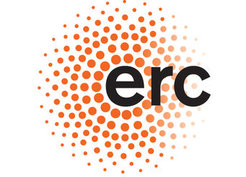
(01.01.2019 – 31.12.2023)
Hannes Mutschler (MPI Research Group: Biomimetic Systems)
Full title:“RiboLife- Resurrecting LUCA – Engineering of RNA-encoded Cellular Life Using Dual Evolution and Intergenomic Transplantation”
Budget: 1,5 Mio Euro
Modern cellular life strictly depends on DNA as genetic material. However, a large body of evidence infers the existence of a previous, more primitive biology in which RNA also stored information in cellular entities. The proposed research will use a novel approach to engineer bacterial hybrids with core cellular functions encoded on RNA. It will fundamentally advance both bottom-up and top-down synthetic biology, and could positively answer the transformative questions: Can we create, program and evolve life-like systems that can survive in both cell-free and intracellular environments? Can we use these entities to construct an alternative biology in which the central activities are encoded on genomes not made of DNA?
ERC Starting Grant: REPLISOMEBYPASS
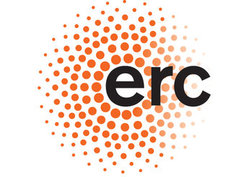
(01.01.2019 – 31.12.2023)
Karl Duderstadt (MPI Research Group: Structure and Dynamics of Molecular Machines)
Full title: “REPLISOMEBYPASS - Challenges on the road to genome duplication: Single-molecule approaches to study replisome collisions“
Budget: 1,5 Mio Euro
Faithful duplication and transmission of genetic and epigenetic information is the most vital cellular function for the preservation and proliferation of life. In cells, this process is conducted by large macromolecular complexes, known as replisomes. These large molecular machines will be visualized "at work" during replication using a novel imaging approach. The objective of the project is to develop a complete molecular understanding of the consequences of replisome collisions and the underlying mechanisms that allow for bypass or trigger replication fork collapse.
ERC Starting Grant: TransTempoFold
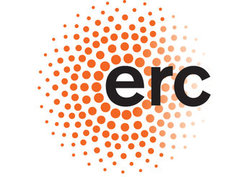
(01.01.2019 – 31.12.2023)
Danny Nedialkova (MPI Research Group: Mechanisms of Protein Biogenesis)
Full title: “TransTempoFold - A need for speed: mechanisms to coordinate protein synthesis and folding in metazoans.”
Budget: 1,5 Mio Euro
Proteins function only after folding into complex three-dimensional shapes. Loss of protein conformation is detrimental for cellular health, and a hallmark of aging and diverse human diseases. This project will define how diverse metazoan cell proteomes are established and maintained, and reveal why some cells tolerate misfolded proteins better than others.
ERC Advanced Grant: Nedd8Activate
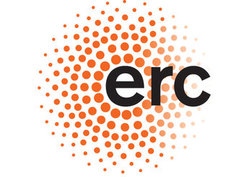
(01.10.2018 – 30.09.2023)
Brenda Schulman (MPI Dept.: Molecular Machines and Signaling)
Full title: “Nedd8Activate - How does the ubiquitin-like protein NEDD8 activate ubiquitin ligase machineries?”
Budget: 2,2 Mio Euro
Post-translational modification by ubiquitin and ubiquitin-like proteins (UBLs) is a major eukaryotic regulatory mechanism. Nonetheless, we have little understanding of the detailed mechanisms by which most E3 ligases mark s pecific targets with monoubiquitin, multiple ubiquitins or specific polyubiquitin chains, or of how UBL modifications transform the functions of their targets. We will comprehensively define how a UBL directly regulates its targets, and how two major E3 ligase families mediate regulation.
MSCA-IF: SRIMEM

(01.09.2018 – 31.08.2020)
Ganji Mahipal (MPI Research Group: Molecular Imaging and Bionanotechnology)
Full title: “SRIMEM - Super-Resolution Imaging and Mapping of Epigenetic Modifications”
Epigenetic marks are posttranslational modifications of chromatin that act as gene regulators. Although every cell-type contains the same DNA sequence, the epigenetic marks dictate specific function of each cell-type. In this project, a novel assay for simultaneous identification of epigenetic marks and their genomic position is proposed. Once established, it can be used as a tool to identify aberrant marks in cells for diagnosing diseases such as cancer, Alzheimer’s, and diabetes.
ERC Advanced Grant: EXORICO
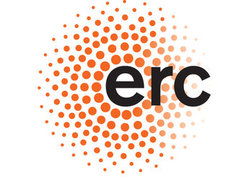
(01.10.2017 – 30.09.2022)
Elena Conti (MPI Dept.: Structural Cell Biology)
Full title: “EXORICO - Exosome and ribosome coupling“
Budget: 2 Mio Euro
To date, mechanistic studies on the macromolecular complexes that synthesize or degrade RNAs or proteins have investigated these machines individually to understand how they execute different steps in the gene expression process. Although the individual complexes catalyze their reactions independently of each other in vitro, increasing evidence suggests that they function in a highly coordinated manner in vivo. The molecular basis for such a coordination remains largely unknown. Here, we will take these analyses to the next level and visualize how a major RNA degradation machine, the exosome, is directly coupled to the protein-synthesis machine, the ribosome. In particular, we want to study two different exosome-ribosome assemblies that underpin opposite outcomes of RNA degradation: a constructive function of the nuclear exosome in the maturation of the large ribosomal subunit and a destructive function of the cytoplasmic exosome in the elimination of ribosome-bound mRNAs. Overall, this work will provide important insight into the principles that coordinate different steps of eukaryotic gene expression.
MSCA-IF: POLAR

(01.09.2017 – 31.08.2019)
Leon Harrington (MPI Dept.: Cellular and Molecular Biophysics)
Full title: “POLAR – Synthetic Mimicry of Cellular Polarisation”
Biological self-organisation through spontaneous symmetry breaking is essential for the emergence and maintenance of life. Cell polarity, where an asymmetric distribution of molecules is achieved within a cellular compartment, is one of the simplest and most studied examples, but still there are big lacks of knowledge. A synthetic system capable of mimicking cellular polarization in an artificial compartment is planned to be built and thus more insight in this process should be gained.
ERC Consolidator Grant: FocAd
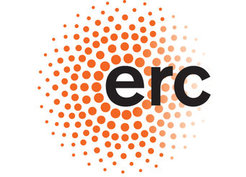
(01.07.2017 – 30.06.2020)
Naoko Mizuno (MPI Group: Cellular and Membrane Trafficking)
Full title: “FocAD – Structural Studies on Focal Adhesions"
Budget: 2 Mio Euro
Focal adhesions (FA) are gigantic protein complexes whose formation is triggered by integrin ligand activation. FAs represent (1) a sensing platform and anchoring points to the outside environment and, (2) a machinery to transduce this information by initiating signaling pathways for cell growth, survival, migration and polarization. Failure in the regulation of FA leads to developmental defects and contributes to the formation of aggressive cancers. Hence, understanding FA formation is the basis for counteracting these detrimental effects
MSCA-IF: REVERSING TAUOPATHY

(01.06.2017 – 31.05.2019)
Saurabh Gautam (MPI Dept.:Cellular Biochemistry)
Full title: “REVERSING Tauopathy - Identifying and deciphering the mechanism of the cellular machinery responsible for disaggregation of intracellular prion-like Tau aggregates"
Tauopathies are a group of neurodegenerative diseases, the most common of them being Alzheimer’s disease, which are associated with the aggregation of protein Tau in the brain. Therapeutics to cure these tauopathies are urgently needed, but the mechanism of Tau aggregation and its pathogenesis giving rise to neurodegenerative diseases is not yet understood. We aim to identify the conditions, the cellular machinery responsible and the mechanism of disaggregation of intracellular prion-like Tau aggregates in cell culture.
MSCA-IF: Immuno RQC

(01.05.2017 – 30.04.2019)
Deborá Broch Trentini Schmidt (MPI Dept.:Cellular Biochemistry)
Full title:“Immuno-RQC - Role of Listerin ubiquitin ligase in MHC-I antigen presentation"
Mammalian cells present a fingerprint of their proteome through the display of endogenous peptides on MHC-I complexes. This allows for CD8+ T cells to recognize and kill cells infected with viruses or other intracellular parasites, or cells accumulating aberrant proteins resulting from malignant transformation. Here we test whether the E3 ubiquitin ligase Listerin, which marks nascent polypeptides resulting from defective mRNAs for degradation, also contributes to the production of peptides for MHC-I loading. Our major aim is to investigate a potential involvement of Listerin in antigen presentation.
MSCA-IF: Cytokineproteomics

(01.03.2017 – 28.02.2019)
Maria Tanzer (MPI Dept.: Proteomics and Signal Transduction)
Full title:“Cytokineproteomics – Investigating inflammatory signaling by combining phospho- and ubiquitin proteomics with CRISPR/Cas9 technology”
Deregulation of pro-inflammatory cytokine signalling is the underlying cause for many inflammatory diseases. Thus, understanding the molecular mechanism of cytokine signalling is necessary to develop suitable therapies. This study will investigate the mechanisms and the relationship between phosphorylation and ubiquitylation in cytokine signalling in an unprecedented way and has the potential to result in the identification of new therapeutic strategies for the treatment of a range of inflammatory diseases.
MSCA-ITN-ETN: TEMPERA

(01.03.2017 – 28.02.2021)
MPI Group: Computational Systems Biochemistry
Coordinator: Enrico Cappellini, UCPH
6 partners (+4 external partners) in 5 countries
Budget: total: 2.2 Mio Euro; MPIB: 250.000 Euro
Full title:“TEMPERA: Teaching Emerging Methods in Palaeoproteomics for the European Research Area”
TEMPERA will provide international, and intersectoral training for early stage researchers (ESRs) to read ancient protein sequences and interpret the recovered information. This will improve knowledge about production techniques and chemical preservation of cultural heritage materials, ultimately improving their safeguard and conservation. TEMPERA will also guide the ESRs to develop the advanced interdisciplinary knowledge required to achieve seamless integration of this innovative analytical approach with the established principles and practices of cultural heritage restoration and conservation.
MSCA-IF: Minimal-phagocyte

(01.09.2016 – 31.08.2018)
Kristina Ganzinger (MPI Dept.: Cellular and Molecular Biophysics)
Full title: “Minimal-phagocyte: Reconstitution of the basic molecular mechanism of phagocytes – a bottom-up synthetic biology approach”
The ability of cells to engulf large objects, such as invading microorganisms or apoptotic cells is crucial to innate immunity and tissue remodelling. The molecular basis of this process – phagocytosis – is complex, involving numerous receptors and signaling pathways. Although the key molecular players in individual phagocytic pathways have been identified, we still know very little about the basic biophysics of phagocytosis. The aim of this project is to fill this gap in our knowledge.
MSCA-ITN-ETN: EDGE

(01.05.2016 – 30.04.2020)
MPI Group: Innate Immunity
Coordinator: Søren Riis Paludan, AARHUS UNIVERSITET
9 partners in 6 countries
Budget: total: 4 Mio Euro; MPI: 250.000 Euro
Full title: “EDGE: Training network providing cutting-EDGE knowlEDGE on Herpes Virology and Immunology”
Key research aims of EDGE are to improve the basic understanding of the interactions between herpesviruses and host cells and to uncover implications for the clinical outcome of infections as well as development of vaccines. EDGE will provide a comprehensive and cross-disciplinary structured curriculum for doctoral students in the fields of virology and immunology.
FETOPEN: MSmed (co-financed by the European Commission)
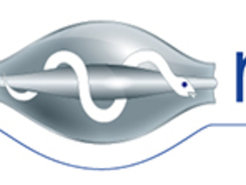
(01.12.2015 – 30.11.2019)
MPI Group: Computational Systems Biochemistry
4 partners in 3 countries
Budget: total: 3.6 Mio Euro; MPI: 699.000 Euro
Full Title: “Mass spectrometric technology for next generation proteomics in systems medicine”
The project is expected to establish mass spectrometry based proteomics in systems medicine, making all workflows and mass spectrometry platforms available to the community. These workflows will be used as the basis of myriad applications in biomedicine, even in the clinic. This in turn will lead to a new eco-system around improved diagnosis, elucidations of disease mechanisms and drug action.
ERA-NET: ERASE (financed by the European Commission and the BMBF)
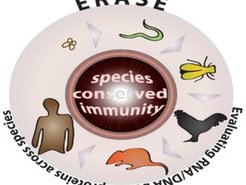
(01.05.2015 – 30.04.2018)
MPI Group: Innate Immunity
6 partners in 4 countries
Budget: total: 2 Mio Euro; MPI: 388.000 Euro
Infect-ERA:"ERASE - Evaluating RNA/DNA bound proteins across species."
The multinational team aims to identify conserved defense mechanisms against viruses. Hereby, the researchers hope to discover candidate mechanisms that can be used for future antiviral therapeutic approaches.
ERC Starting Grant: GAMES
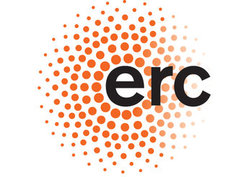
(01.06.2015 – 31.05.2022)
MPI Group: Neuroinflammation and Mucosal Immunology
Budget: 1,5 Mio Euro
Gut Microbiota in Nervous System Autoimmunity: Molecular Mechanisms of Disease Initiation and Regulation.
ERC Starting Grant: Autophagy in vitro
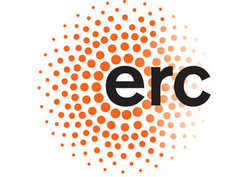
(01.04.2015 – 31.03.2020)
MPI Group: Molecular Membrane and Organelle Biology
Budget: 1,5 Mio Euro
Reconstituting Autophagosome Biogenesis in vitro.
ERC Advanced Grant: SUMOGROUP
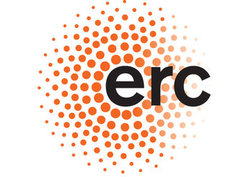
(01.02.2014 – 31.10.2017*)
* original duration until 31.01.2019; amended to 31.10.2017 following the death of PI Stefan Jentsch on October 29, 2016.
MPI Group: Stefan Jentsch
Budget: 1,4 Mio Euro (original budget: 2,5 Mio)
Posttranslational modification (PTM) of proteins by ubiquitin family proteins is of fundamental importance for cellular function, regulation and development. The ubiquitin-related protein SUMO frequently targets protein groups rather than individual protein substrates. SUMOGROUP addresses the function of protein group SUMOylation and expects to break new ground in areas of cellular regulation and cell biology in general.
Marie Curie Initial Training Network: PloidyNet

(01.10.2013 - 30.09.2017)
Coordinator: René Medema (NKI, Amsterdam)
Manager: Henri van Luenen (NKI, Amsterdam)
MPI Group: Zuzana Storchova
11 Partners in 4 countries, Budget: 3 Mio Euro.
Aneuploidy, an abnormal number of chromosomes, is a hallmark of cancer cells and affects the majority of all human tumours. PloidyNet aims to determine and compare the molecular consequences of different levels of aneuploidy, both in vivo and in vitro. At the same time the network will train young researchers to become experts in the field of aneuploidy.
ERC Synergy Grant: ToPAG
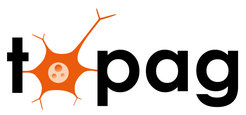
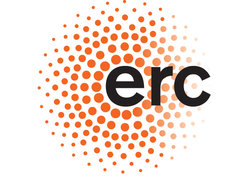
(01.06.2013 – 31.05.2019)
MPIB Groups: Franz-Ulrich Hartl, Wolfgang Baumeister, Matthias Mann
MPIN Group: Rüdiger Klein
Budget: 14 Mio Euro.
Formation of amyloid-like protein aggregates is the hallmark of a number of neurodegenerative diseases, but how the aggregation process is linked with cytotoxicity and cell death remains unclear. The goal of ToPAG is to elucidate the basic mechanisms of aggregate toxicity and how it affects the biological system in its entirety. Understanding aggregation toxicity will be invaluable in developing novel therapeutic strategies for some of the most debilitating diseases of our time.
MSCA-CIG: SORTMECH

(01.04.2013 – 31.03.2017)
Julia von Blume
Full title: “SORTMECH – Characterization of a novel sorting pathway at the Trans Golgi Network (TGN)”
Budget: 100.000 Euro
The Trans Golgi Network (TGN) is the central sorting station for newly synthesised proteins in the cell. Similar to a postal distribution center, incoming cargo is selected, sorted, and packaged to be carried to its final cellular destination by the postman in charge. Due to the involvement of numerous different cargoes and carriers for the different destinations this process of protein sorting at the TGN is highly sophisticated. We will characterize a new sorting mechanism in detail to identify components of the sorting machinery on both cytosolic and luminal faces of the TGN.
ERC Advanced Grant: SIGNAL2THEHUB
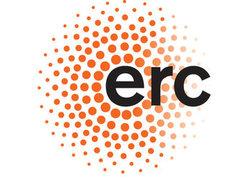
(01.03.2013 – 28.02.2018)
MPI Group: Reinhard Fässler
Budget: 2,5 Mio Euro.
Integrin-mediated cell adhesion is essential for the development and homeostasis of multicellular organisms. Integrins recruit adhesion proteins into large signalling hubs called adhesomes. SIGNAL2THEHUB investigates the mechanistic contribution of individual integrin classes to the recruitment of proteins to the adhesome and how adhesome signalling is induced.
ERC Starting Grant: Flight Muscle
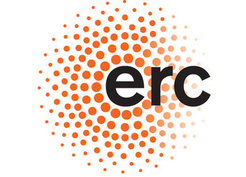
(01.02.2013 – 31.01.2018)
MPI Group: Frank Schnorrer
Budget: 1,5 Mio Euro
Mechanistic dissection of myofibrillogenesis and sarcomerogenesis in insect muscle.
ERC Starting Grant: iViP
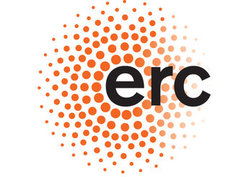
(01.11.2012 – 31.10.2017)
MPI Group: Andreas Pichlmair
Budget: 1,5 Mio Euro.
Impact of virus infection on the host proteome.
ERC Starting Grant: CiliTransport
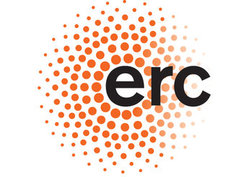
(01.09.2012 – 31.08.2017)
MPI Group: Esben Lorentzen
Budget: 1,5 Mio Euro.
Structural Studies and Regulation of Intraflagellar Transport Complexes - The cilium is an organelle that protrudes from the cell body and is responsible for the motility of unicellular organisms and of vertebrate cell types such as sperm cells. In addition, most vertebrate cells have primary non-motile cilia important for sensory reception and signalling. The assembly and function of cilia rely on intraflagellar transport (IFT), the bi-directional movement of macromolecules between the cell body and the cilium.
ERC Advanced Grant: DEAD2THEEND
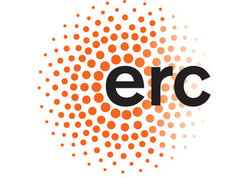
(01.04.2012 – 31.03.2017)
MPI-Group: Elena Conti
Budget: 2,5 Mio Euro.
RNA poly(A) tail: the beginning of the endIn this project, we will reconstitute the key protein complexes in mRNA decay from recombinant proteins in vitro. Specifically, we will focus on the evolutionary conserved deadenylation, decapping and exosome-Ski complexes. The reconstituted complexes will be used for structural studies to derive atomic models of the holoenzymes using a combination of X-ray crystallography and cryoelectron microscopy. In parallel to obtaining static views of the individual steps in the pathway, we will establish the assays to study how information from one processing step is passed on to the next in a dynamic manner. We will address the basis for the timing and interrelationship of the conserved enzymatic machineries and the influence of the mRNP composition on their activity. Our final goal is to recapitulate the complex behaviour of the mRNA decay pathway in vitro.
Collaborative Project: 4DCellFate
(01.12.2011 - 30.11.2016)
Coordinator: Luciano di Croce (CRG, Barcelona)
Manager: Mariana Morlans (CRG, Barcelona)
MPI Group: Juerg Mueller
12 Partners in 8 countries, budget: 12 Mio Euro.
The goal of 4DCellFate is to understand how the PRC/NuRD complexes and their plethora of interactions (protein/protein, protein/nucleosome, protein/nucleic acids) regulate cell fate. The ultimate outcome will be to lay the foundations for understanding the role of the PRC/NuRD complexes in ES cell differentiation and cancer, specifically in leukaemogenesis.
Collaborative Project: Euro-MOTOR
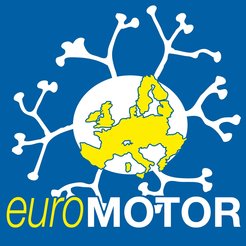
(01.02.2011-31.01.2016)
Coordinator: L. van den Berg, UMC Utrecht
Manager: P. Berk, UMC Utrecht
MPI Group: M.Mann
15 Partners (16 Labs) in 7 countries, budget: 11,8 Mio Euro.
Major objective is a better understanding and treatment of the neurotropic degenerative disease Amyotrophic Lateral Sclerosis. Euro-MOTOR aims to detect key genetic drivers of disease susceptibility/progression and to generate a model of disease which can be validated in patients to pave the way for novel therapeutic interventions for this disabling and fatal disease.
ERC Starting Grant: DiseNtAngle

(01.11.2010 – 31.10.2015)
MPI Group:Stephan Gruber
Budget: 1,4 Mio Euro.
Untangling the Bacterial Chromosome: Condensin's Role in Sister Chromosome Separation and its Mechanisms.
FP7 Marie Curie Initial Training Network: RNPnet
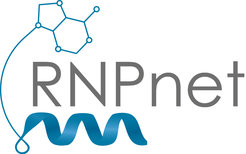
(01.11.2011 - 31.10.2015)
Coordinator: Frédéric Allain (ETH, Zürich)
Manager: Regina Notz (ETH, Zürich)
MPI Group: Elena Conti
14 Partners (15 Labs) in 8 countries, budget: 4,2 Mio Euro.
The goal of this ITN (RNPnet) is first to bring together existing labs from different discipline, to join forces and tackle key questions in the field, and second, to produce highly-trained young researchers that will be sensitized to RNA and possess a multidisciplinary approach to research.
Collaborative Project & CSA: Prime-XS

(01.02.2011- 31.01.2015)
Coordinator: Albert Heck, Utrecht University
Manager: Reinout Raijmakers, Utrecht University
MPI Group: M.Mann
12 Partners (15 Labs) in 9 countries, budget: 9,8 Mio Euro.
Major objective: to provide state-of-the-art proteomics technologies to the European biological and biomedical research community. The leading proteomic labs forming Prime-XS will provide access to their facilities, develop new technologies, and will disseminate knowledge and expertise through meetings and training events.
EU FP7 Coordination Action: CommHERE

(01.10.2011 - 30.09.2014)
Coordinator: Ulla Bredberg (Karolinska Institutet, Stockholm)
Manager: Jennie Idegren (Karolinska Institutet, Stockholm)
MPI Group: Anne Katrin Werenskiold
10 Partners in 7 countries, budget: 2 Mio Euro.
The overall aim of CommHERE is to improve communication on the outcome of EU funded health research projects to the media, the general public and other target groups including the EC in all of Europe.
EU FP7 Marie Curie Initial Training Network: Nucleosome4D
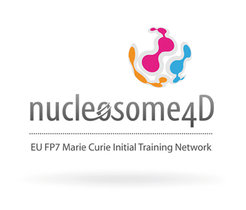
(01.11.2009 - 31.10.2013)
Coordinator: Andreas Ladurner, EMBL Heidelberg (LMU, Munich from March 1, 2011 onwards)
Manager: Marzia Sidri, EMBL Heidelberg (Corey Laverty, LMU Munich from March 1, 2011 onwards)
MPI Group: Juerg Müller
16 Partners (21 Labs) in 11 countries, budget: 4,6 Mio Euro.
The main objective of the Network is to provide young researchers with world-class research & training in chromatin biology. Complementary approaches in structural biology, biophysics, cell biology, live-cell imaging, biochemistry, genetics, genomics and bioinformatics will be used in collaborative projects to determine how nucleosomes are remodeled during transcription, when genes are silenced, as cell divide, as stem cells differentiate, during organismal development and in human disease.
ESFRI-Project: Instruct

(Preparatory Phase: 01.04.2008-31.03.2011; Operational Phase: since 01.04.2011)
Coordinator: D. Stuart, University of Oxford
National Coordination: W. Baumeister, MPI Biochemistry
Preparatory Phase: 12 partners in 5 countries, budget. 4.5 Mio Euro. Major objectives: to set up a framework consisting of distributed centres (during preparatory phase 7 core centres), each of which will maintain a set of core technologies such as protein production, NMR, crystallography and different forms of microscopy, including electron microscopy and combine this with a specific biological focus that will drive the development of technological and methodological expertise, notably for the analysis of functional complexes.
Operational Phase: Currently 20 partners in 8 countries, 8 core centres and 7 associate centres. Major objectives: to provide European researchers from academia and industry with access to state-of-the-art structural biology technologies, scientific expertise and training and, by driving innovation at the boundaries between these technologies, stimulate and facilitate research that integrates an understanding of biological structure with cellular function.
Collaborative Project: Prospects

(1.4.2008-31.3.2013)
Coordinator: M.Mann, MPI Biochemistry
Manager: Anne Katrin Werenskiold, MPI Biochemistry
MPI Groups: Mann, Hartl, Baumeister
10 Partners (12 Labs) in 7 countries, budget. 11,7 Mio Euro. Major objectives include the development of much more powerful instrumentation and novel proteomics methods. The goal is to annotate quantitatively the human proteome with respect to protein localization and dynamics.
Integrated Project: Interaction Proteome

(1.1.2004-30.6.2009)
Coordinator: F-U. Hartl, MPI Biochemistry
Manager: Anne Katrin Werenskiold, MPI Biochemistry
11 Partners (14 Labs) in 7 countries, budget. 12 Mio Euro. Major objectives include the establishment of a broadly applicable platform of routine methods for the analysis of protein interaction networks.
Network of Excellence: 3D-EM

(1.3.2004-31.08.2009)
Coordinator: A. Engel, Biozentrum, Basel
Scientific Manager: Anne Katrin Werenskiold, MPI Biochemistry
16 Partners (18 Labs) in 7 countries, budget. 10 Mio Euro. Major objectives include the establishment of synergies between different technologies in structural research and of an extensive training programme in all fields related to structural biology

































